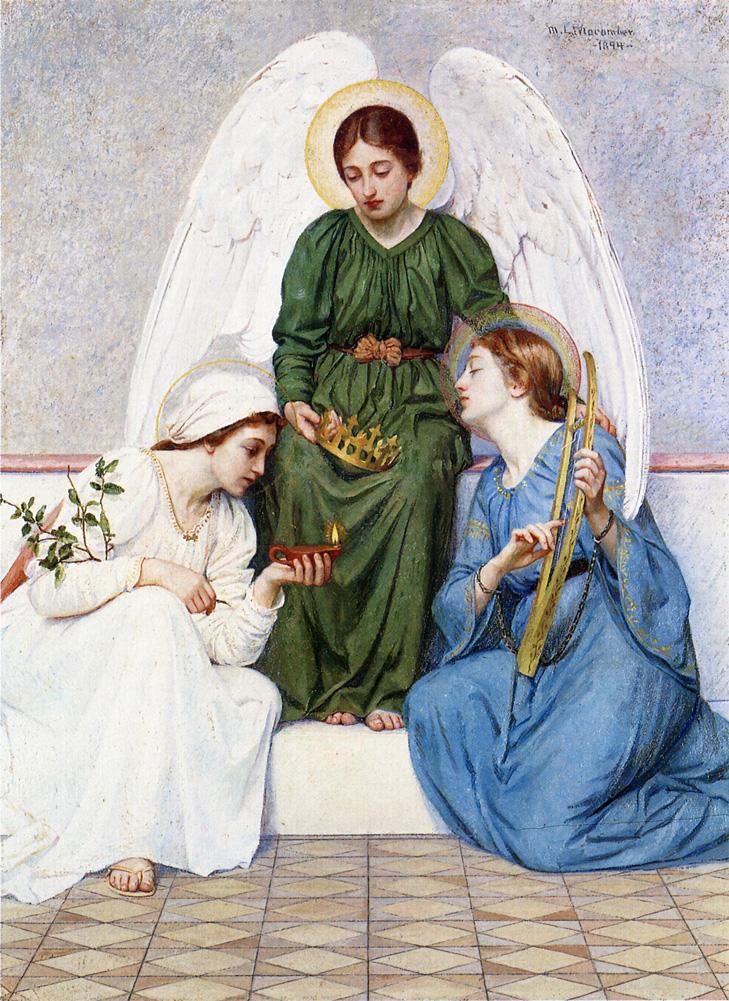"The
Great Divorce" is a strange allegorical novel written by the well-known
Christian writer C.S. Lewis, who was also a friend of J.R.R. Tolkien. "The
Great Divorce" is also my favorite work by Lewis, alongside the classical
children's story "The Lion, The Witch and the Wardrobe".
The novel is about Heaven and Hell. Hell turns out to be a boring, great city, where the sun never really rises. An angel operates a bus that takes people from Hell to Heaven. Anyone who likes can go onboard the bus. In Heaven, the denizens of Hell are met by angels who call upon them to enter. The offer of salvation is (almost) free. Despite this, most of the bus-passangers voluntarily decide to go back to Hell!
On first reading, the story might sound completely absurd. Who would be so stupid as to voluntarily remain in Hell, if you are offered an eternity in Heaven instead? The story makes more sense if read as an allegory about why people reject the Church here on Earth. For instance, one of the main characters is a heretical priest who refuses to accept the truths of traditional Christianity, even when confronted with hard evidence. Another character is some kind of bohemian left-wing artist. They both retun to "Hell", i.e. the meaningless, grey, secular world outside the Church.
The story could also be read as a criticism of modern society. The people in "Hell" live in houses that slowly but steadfastly move away from each other, making the inhabitants more and more socially isolated from each other, and more and more preoccupied with their own negative feelings, rather than turning towards what C.S. Lewis believed was the best source for Meaning in life: traditional Christianity. (Poor Napoleon is held up as a particularly bad example of a meaningless, self-preoccupied denizen of "Hell". Lewis was British.)
But the story is also theologically interesting. Indeed, Lewis seems to have believed that his allegorical description of Heaven and Hell reflected something real. It's not just a story about modern man rejecting the Church, or modern society becoming increasingly meaningless. It's also a story about the actual, supernatural realms known as Heaven and Hell.
Lewis felt extremely uncomfortable with the traditional idea of Hell. Small wonder. The traditional idea is deeply immoral: Jesus throws most of humanity in Hell, for eternal torture, simply for disbelieving in him and his mission. Christian groups who believe in this, claim that everyone who disbelieves *them* will end up in Hell. "Ultra ecclesiam nulla salus". And once you've been cast into Hell, let go of hope, for there is no turning back, not even an "Arbeit macht frei".
Modern Christians have tried to mitigate the hellish ideas of traditional Christianity somewhat. Some say that people who go to Hell choose to go there voluntarily. Others claim that even non-Christians can go to Heaven, at least if they act as Christians. Still others, who really believe in Hell, refuse to discuss the matter if a critic gets to close for comfort. For instance, did the victims of 9/11 go straight to Hell? Most of them weren't born-again Christians.
Lewis felt so uncomfortable with Hell, that he went one step further still. He essentially identified Hell with Purgatory, and claimed that those who want to leave, can do so. He thus rejected the idea, based on the parable of the rich man and Lazarus in the New Testament, that denizens of Hell cannot leave their place of habitat. Lewis created a more humane, rational and logical view of Hell. What a pity that main-stream Christianity took millenia to come around to this position! Indeed, many still haven't.
At the same time, Lewis couldn't accept universalism, the idea that everyone gets saved in the end. What if people don't *want* to be saved? And that is precisely the main point of the novel. Why would a person voluntarily reject Heaven, even if given unlimited chances to enter? Why indeed? Many people here on earth refuse to get helped. They refuse to listen even to the most kind, loving advice. In fact, we all do, to a greater or lesser extent. What makes us think that angels or God himself could change this? Yes, many people would be changed, but the greater the love, the greater the rejection might be, the more supernatural the love, the more supernatural the rejection. Hence Heaven and hence Hell. And at a certain point in time, people get so ingrained in their real or imaginery insults, that they are simply beyond redemption. That, I take it, was Lewis' point. And no, I'm not saying I believe in Lewis' supernatural speculations...
And yet, Lewis simply couldn't end his book on a sombre, pessimistic note. He was no Albert Camus. Good old Jack seems to have been quite a party-animal, perhaps even a bit too hedonistic for his fellow high churchmen. So in the novel, he lets one of the characters discover that the seemigly endless City of Hell is actually just a pinprick compared to the vastness of Heaven.
In his heart, I think Lewis might have been a universalist after all.
Goodspeed, Jack, wherever you are.

No comments:
Post a Comment